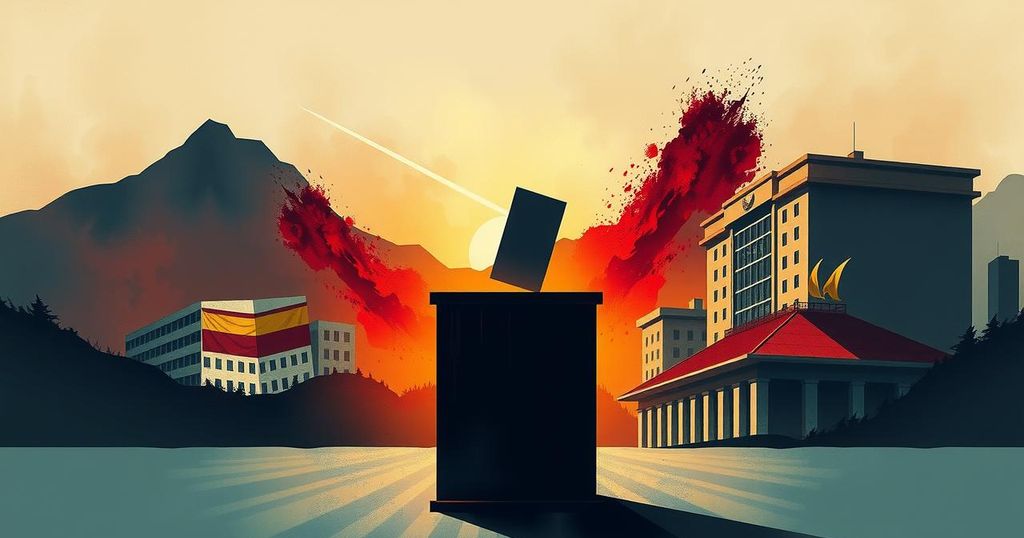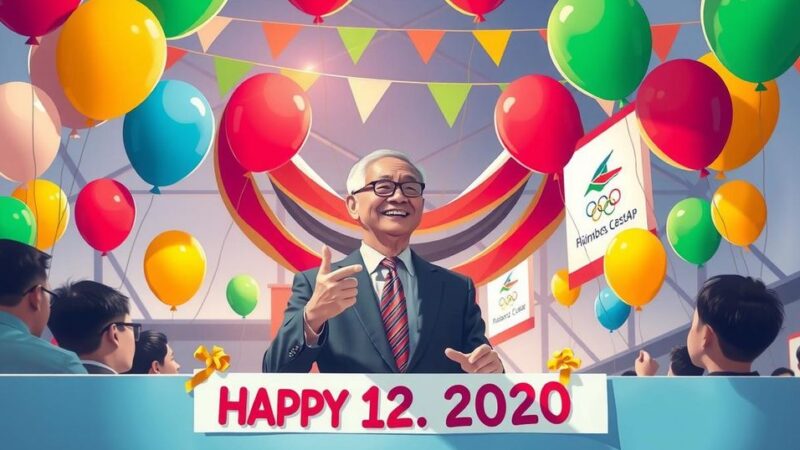Ecuador’s recent elections sought to address escalating violence from drug cartels. President Daniel Noboa, despite challenges, aims for reelection with popularity derived from tough policies. Opposition candidate Luisa González criticizes Noboa’s governance and promotes a different approach to drug violence. The election’s outcome is crucial for the nation’s future in combating organized crime issues.
Ecuador held elections on a Sunday as citizens prepared to determine the future approach toward an escalation in violence linked to drug cartels. President Daniel Noboa, only 37 years old and one of the youngest leaders worldwide, seeks reelection amidst a tumultuous term marked by increased cartel conflicts impacting international drug trafficking routes, especially from Colombia and Peru to global markets.
Noboa’s first term has experienced significant challenges, including spikes in violence, economic struggles, and allegations of power abuse. Despite these issues, he retains popularity due to his tough-on-crime strategies and youthful appeal. During his campaign, Noboa has emphasized security by participating in media-ready military operations and announcing enhanced military presence during the elections.
Ecuador’s current situation is dire, with organized crime deeply entrenched. Notable criminal entities such as Mexico’s Sinaloa and Jalisco cartels, as well as the Ndrangheta from Italy, have established footholds in the nation. The influx of these organizations has led to a staggering 400 percent increase in homicide rates, drastically transforming Ecuador from a safe haven to one of the most dangerous countries in Latin America.
Numerous political figures have been assassinated, prompting widespread migration as many Ecuadorans flee the violence. The crisis escalated dramatically with an incident where armed individuals attacked a television station during a live broadcast. Meanwhile, more than a dozen candidates are vying to replace Noboa, with primary challenger Luisa González gaining traction.
González, supported by Ecuador’s former leftist President Rafael Correa, has criticized Noboa’s human rights record and called attention to the risks to democracy under his administration. She asserts that Noboa has overstepped his authority and tensions between her and Noboa continue to rise. In her campaign, she has indicated a willingness to negotiate with some criminal factions and emphasized human rights considerations.
Noboa’s relationship with the United States has also come under scrutiny, as he has permitted U.S. military presence in Ecuador. If neither candidate secures a majority vote, a runoff election will occur in April. Voting is compulsory and will take place from 7 AM to 5 PM local time. Their choices will not only shape national policy but also impact international drug trafficking dynamics.
The elections in Ecuador are set against the backdrop of intensified violence related to drug trafficking organizations, particularly the ongoing drug war involving cartels from Colombia and Peru. It reflects larger issues, such as the challenges of organized crime, economic difficulties, and the preservation of democratic norms. The political landscape is sharply divided, with issues of human rights and the approach to curbing drug violence at the forefront of candidates’ campaigns. Ecuador’s geographical location has made it a strategic point in global drug distribution, posing additional challenges for governance and security.
The upcoming election in Ecuador represents a pivotal point in addressing the rampant increase in cartel-related violence and the evolving political climate. President Daniel Noboa’s bid for reelection comes amid substantial criticism and challenges, particularly concerning the impact of organized crime on society. In contrast, Luisa González’s emergence highlights a potential for a new direction in policy-making related to security and human rights. The results of this election will significantly influence Ecuador’s trajectory both domestically and internationally.
Original Source: www.batimes.com.ar






